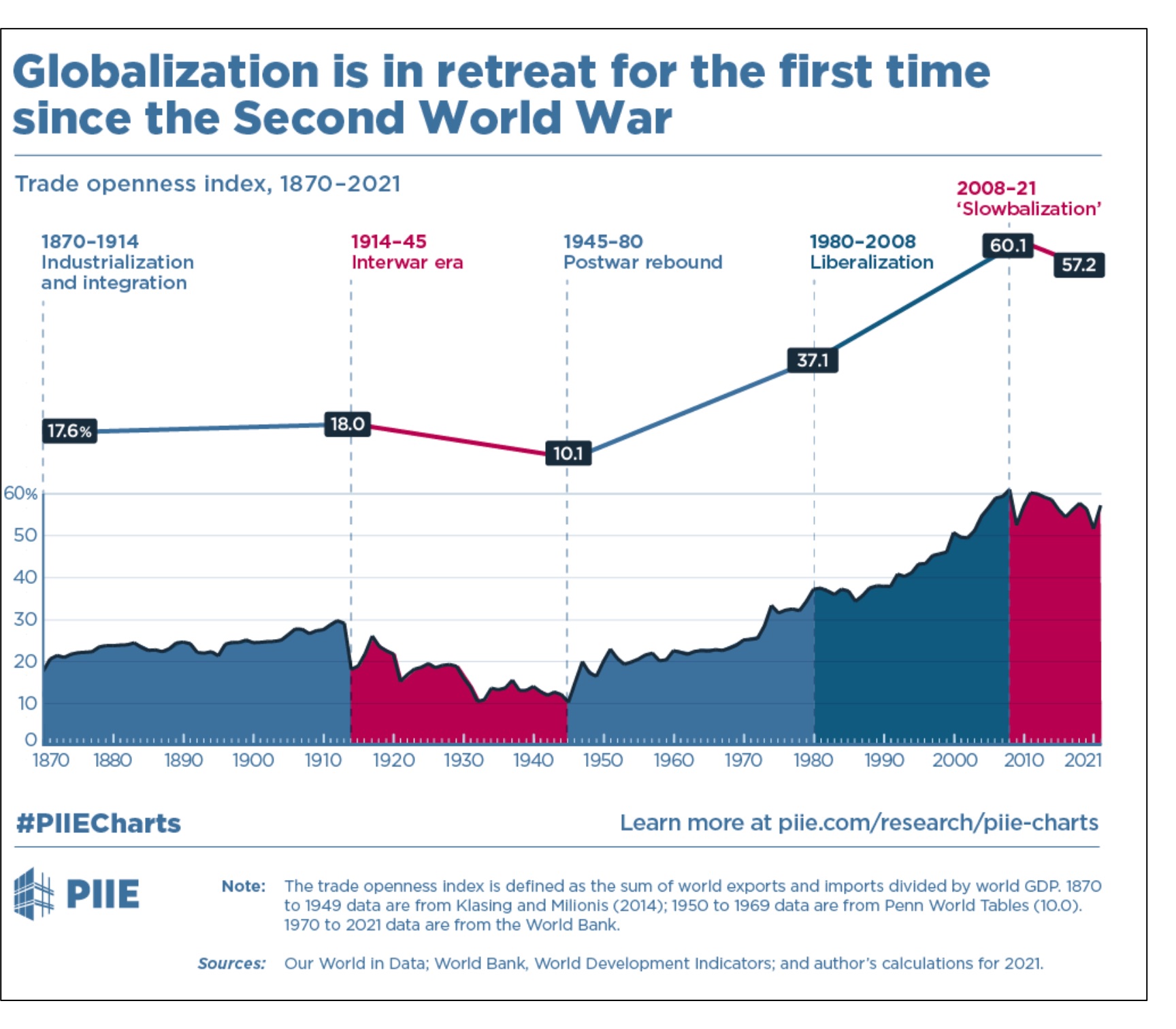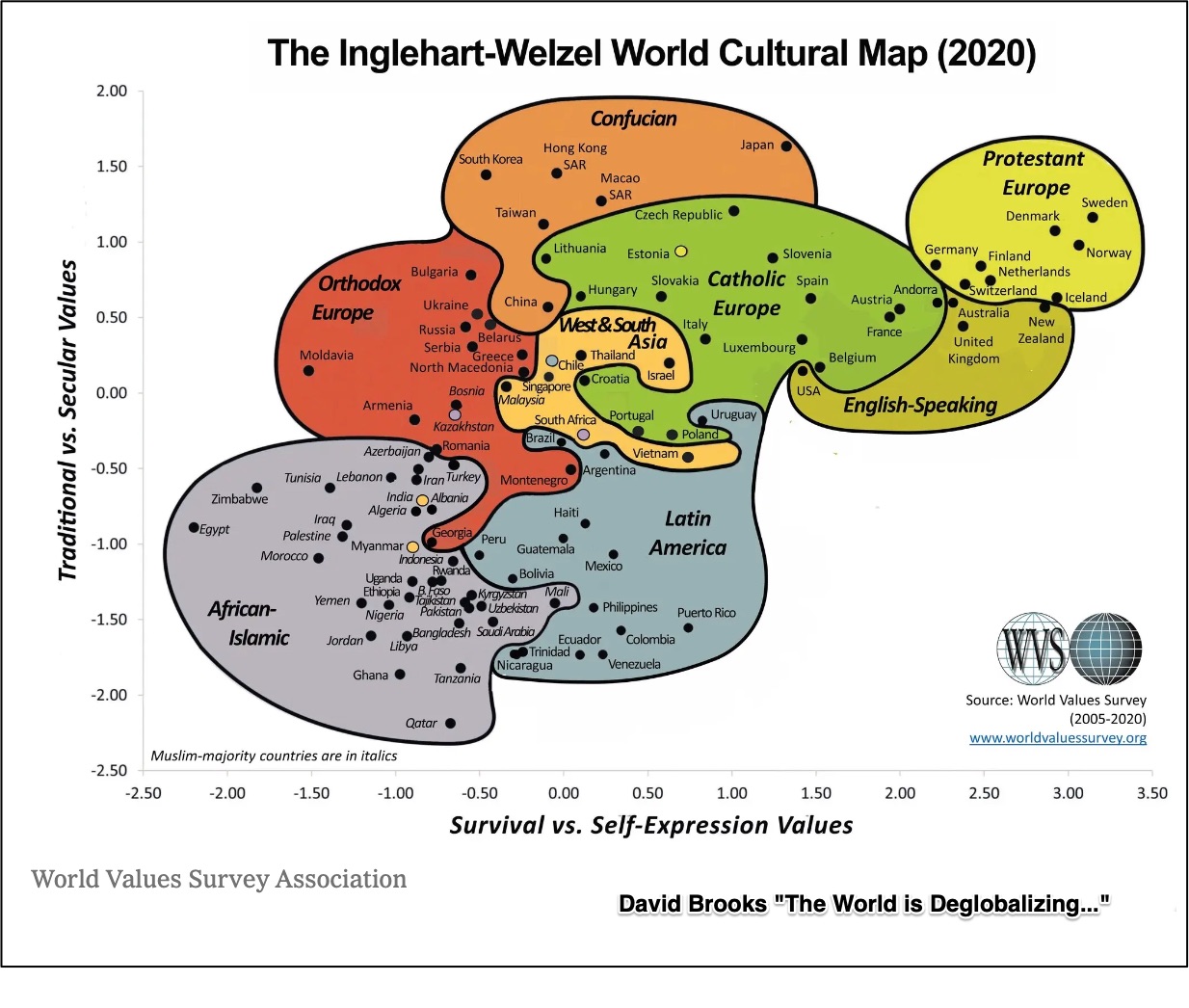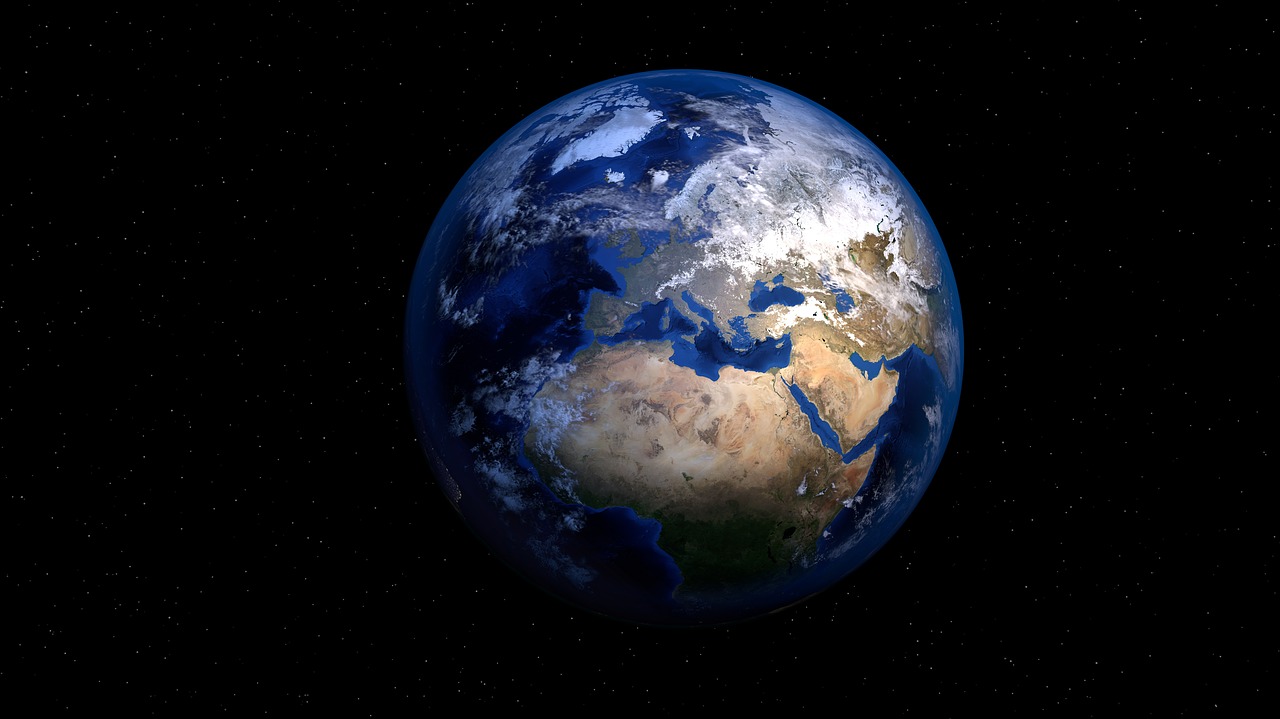Some scholars say we are deglobalizing: Other disagree.
Other disagree.
Debating Deglobalization
During last April, journalist David Brooks told us that, globalization is over
Now though, a scholar from a respected European think tank disagrees.
David Brooks
Looking back, David Brooks reminds us that not so long ago, we thought that everyone would want to be like “us” and Westernize. It did not quite work out that way. Between 2008 and 2019, world trade relative to GDP declined by five percent (or so). We had more tariffs and disintegrating trade deals, Brooks said that the decline was fed by Brexit, Trump populism, an antiglobal left, and xenophobic nationalists. Also, the fuel came from the divide between a global elite and groups that got less respect.
Instead, he suggested, we will have countries with more nationalism and less democracy that create separate trading blocs. Consequently, shown by a world cultural map, Western values became outliers:

Uri Dadush
We could begin with 1985-2008 when trade costs plunged and world markets welcomed newcomers. The shipping container and communication technologies spread as tariffs dropped. The result was rapid globalization.
Now, Dr. Dadush says annual trade growth in goods, down from six percent to three percent, has slowed but only to a more normal pace. Referring to “remarkably resilient” supply chains, in 45 of the world’s non-oil exporting economies, goods trade growth is up while for the U.S., there was no change. Citing the oil exporters, he says they had less trade but only because the comparisons came after a stratopheric rise in oil prices.
At this point, looking beyond the headline trade sanctions and trade wars, he concludes that there was no rise in protectionism. In fact, the proliferation of preferential agreements between the less developed nations and more advanced economies further contradicts a hint of deglobalization.
In his paper for Bruegel, Dr. Dadush displayed the hefty slice of world trade covered by agreements that sidestep protectionism policies:

And from here, he confirms there was less protectionism:

Our Bottom Line: Globalization Support
Reflecting my own bias, the Peterson Insrtitute for International Economics (PIIE) explained the permanent impact of globalization. Job disruption is temporary while the benefits of world trade are permanent. Similarly, they compare globalization to technological progress and also protectionism. With each also, the gains from trade eventually help everyone.
Their graphic summarizes the pro-globalization position:

So, where are we? Comparing David Brooks and Dr. Dadush, we can say that what you see depends on where you look.
My sources and more: Yesterday, listening to a Bruegel podcast, I again began to wonder about the past, present, and future of globalization. With one opinion from NY Times journalist David Brooks and another from Bruegel scholar, U. of Maryland Research Professor Uri Dadush, there was no definitive answer. Still, my go-to place for trade, the Peterson Institute, was helpful with the best detailed up-to-date summary.






